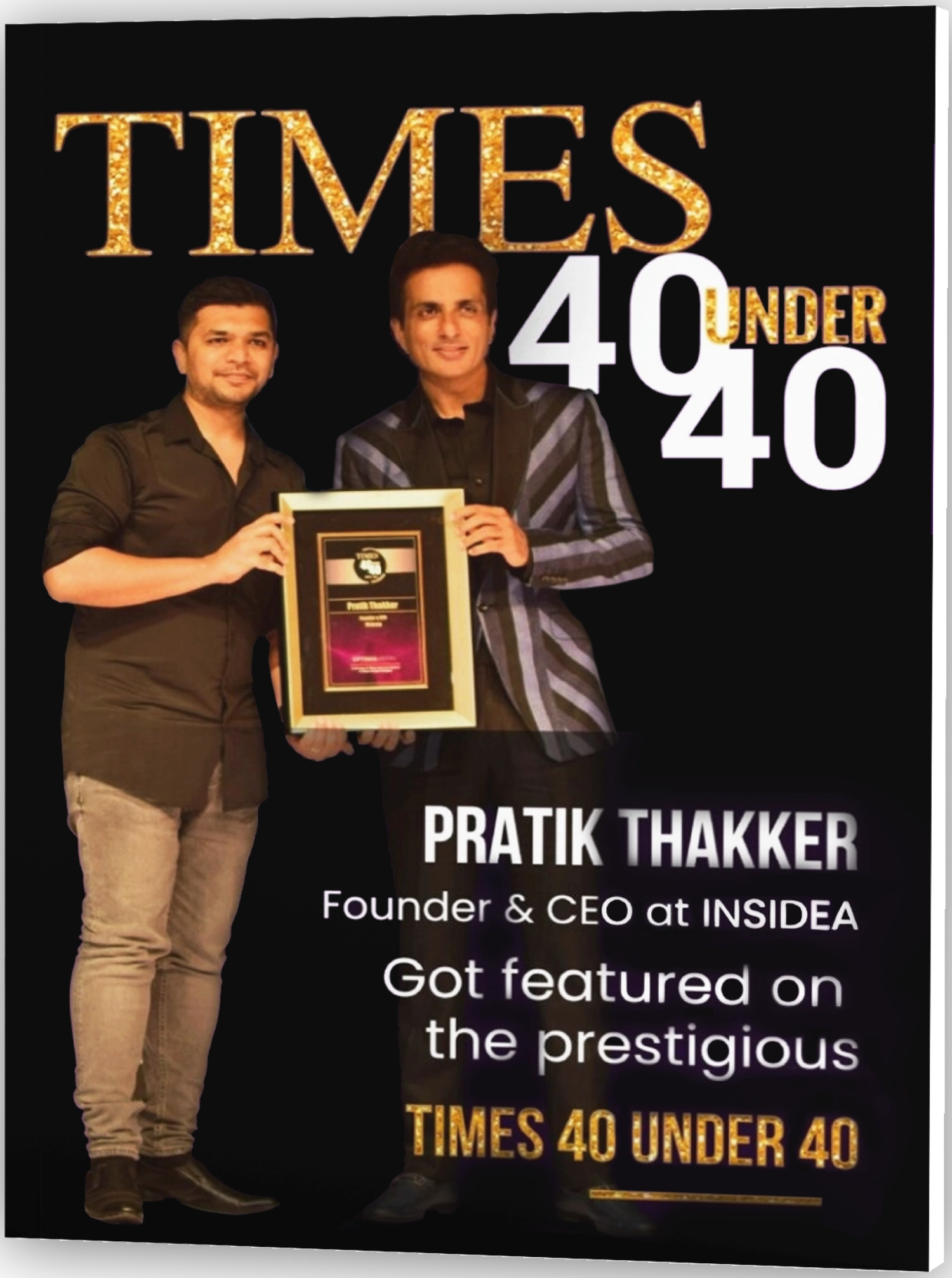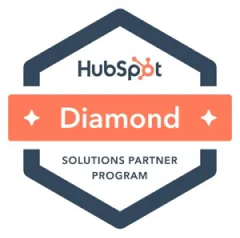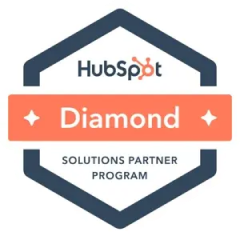In an industry projected to soar to a staggering USD 14.54 trillion by 2030, the global real estate market stands on the cusp of unprecedented growth. At the heart of this thriving sector is the undeniable importance of customer relationships.
What is the key to unlocking these valuable connections? A robust customer relationship management (CRM) strategy tailored specifically for real estate.
In the dynamic world of property dealings, where every interaction counts, CRM for real estate isn’t just a tool; it’s a game-changer. It’s about more than just managing customer data; it’s about delving deep into client behaviors, preferences, and needs, crafting a personalized experience that not only satisfies but also delights.
As real estate investments surge, the role of CRM becomes more critical than ever. It’s the compass that guides realtors through the complex maze of opportunities and risks, driving revenue growth and ensuring every prospect interaction is meticulously tracked and leveraged.
But did you know the impact of a CRM for real estate extends far beyond mere organization? It’s a powerhouse that can significantly boost property sales, transforming leads into lucrative deals.
Navigating the high-stakes real estate market can be overwhelming, with countless meetings and prospects to juggle. This blog is your gateway to understanding the indispensable role of CRM in real estate, shedding light on how it’s not just a tool but a realtor’s strongest ally in today’s competitive landscape.
What is a CRM for Real Estate?
In real estate, CRM is a software package to assist real estate agents and brokers in managing customer relationships. It centralizes interactions and profiles for buyers, sellers, and tenants and streamlines the entire process of renting, selling, and buying properties.
A CRM for real estate is crucial in managing marketing promotions and boosting employee productivity, serving as the cornerstone of a successful real estate business.
Types of Real Estate CRM:
There are two main types of real estate CRM software:
- Desktop Real Estate CRM Software: Installed and run on a local computer, offering robust features for real estate professionals. Data is stored locally, reducing external data breach risks, and can be accessed without internet connectivity.
- Cloud-based Real Estate CRM Software: Hosted on remote servers and accessible online from any internet-enabled device. It offers real-time data updates, automatic data backups, and scalable solutions to accommodate business growth.
How Can You Maximize Your Business Potential with a CRM for Real Estate
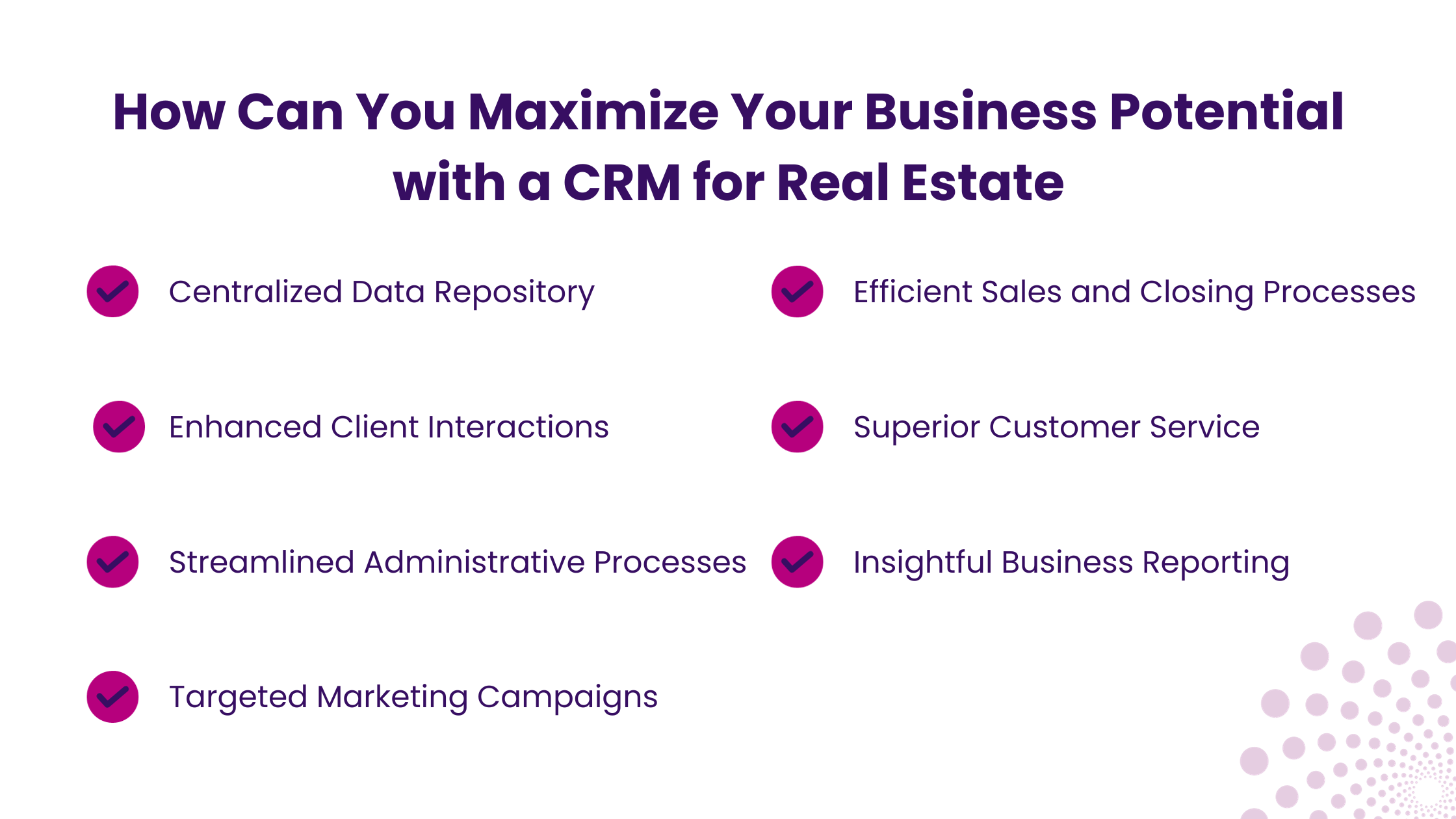
CRM for real estate is essential for realtors, acting as a central hub for business operations. This tool is vital for maintaining competitiveness in the real estate market. Therefore, the following is a list of essential functions in a real estate business:
1. Centralized Data Repository
A real estate CRM acts as a centralized hub for all essential data associated with the business. From client details to property listings, everything is stored in one place. This ensures that realtors have quick and easy access to information, enhancing their efficiency and decision-making capabilities.
2. Enhanced Client Interactions
Realtors are the bridge between properties and potential buyers or tenants. With CRM, they can delve deep into client profiles, understanding their needs, preferences, and budgetary constraints. This in-depth knowledge allows realtors to match clients with the perfect properties, increasing the likelihood of successful transactions.
3. Streamlined Administrative Processes
Administrative tasks, though crucial, can be time-consuming. CRM systems simplify these processes, from adding new property listings to setting client appointments. Realtors can focus more on their core responsibilities by automating many of these tasks, ensuring a smoother operational flow.
4. Targeted Marketing Campaigns
Marketing is pivotal in the real estate sector. CRM systems assist marketing teams in identifying high-potential properties. Moreover, they can segment audiences based on various criteria, allowing for the creation of tailored marketing campaigns. This targeted approach ensures better engagement, higher returns on marketing investments, and more effective lead generation.
5. Efficient Sales and Closing Processes
The final stages of a real estate transaction are critical. CRM systems support sales and closing teams by providing detailed audience insights, facilitating interactions with third parties, and ensuring all transactions adhere to real estate regulations. This structured approach guarantees a seamless experience for clients and minimizes potential legal hurdles.
6. Superior Customer Service
In the competitive world of real estate, customer service can set a business apart. CRM systems empower support teams to offer personalized responses to client queries. With a detailed client history, support teams can promptly address concerns, provide transaction updates, and resolve issues, ensuring client satisfaction and loyalty.
7. Insightful Business Reporting
For realtors to stay ahead, they need a clear understanding of their business performance. CRM systems offer comprehensive reporting and analytics tools. These tools give realtors insights into their operations, from sales figures to client engagement metrics, allowing them to make informed strategic decisions.
For modern realtors, CRM systems are more than just software; they are strategic partners, facilitating growth, enhancing efficiency, and ensuring sustained client relationships.
Features of CRM For Real Estate
Real estate is a dynamic industry; to stay ahead, professionals need tools to streamline operations and enhance efficiency. An ideal CRM for real estate is equipped with features tailored to meet the unique demands of the real estate sector. Here’s a closer look at some of the pivotal features of CRM for real estate:
1. Daily Plan Calendar
A daily plan calendar is a collaborative tool that bridges the communication gap between real estate agents and site managers. With the integration of mobile real estate CRM apps, professionals can seamlessly coordinate, ensuring that all tasks and appointments are completed promptly and nothing slips through the cracks.
2. Graphical Representation of Projects
The CRM software provides agents with graphs that depict various real estate-related projects. These graphical representations offer a clear picture of the status of each property, be it available, booked, or under negotiation. Such a visual tool aids agents in quickly gauging the landscape of their listings, allowing for more informed decision-making.
3. Reporting and Analytics
Real estate CRM software comes equipped with robust reporting and analytics functionalities. These features empower professionals to monitor their team’s performance meticulously. By analyzing key metrics, agents can determine factors influencing their return on investment (ROI) and make necessary adjustments to their strategies.
A well-equipped CRM for real estate software is a strategic partner that facilitates growth, ensures operational efficiency, and fosters enhanced client relationships in the ever-evolving real estate industry.
These are just a few of the numerous ways CRM for real estate can improve the efficiency of your real estate business operations. Investing in real estate CRM is the key to success in the real estate industry.
Selecting the Ideal CRM for Real Estate
Choosing a CRM for real estate is akin to picking the right home for clients; it must meet specific business needs. Consider these general tips:
- Ease of Use: A CRM should be intuitive and easy to navigate. HubSpot, for example, is recognized for its user-friendly interface and quick setup process.
- Marketing Capabilities: The CRM should support marketing efforts and lead generation, offering tools to market properties effectively.
- Software Compatibility: When choosing a CRM that integrates seamlessly with other software used in your business, utilizing open APIs for flexibility is important.
- Mobile Access and Security: With the mobile nature of real estate work, a CRM should offer secure access on various devices, including smartphones and tablets.
- Scalability: Choose a CRM that can grow with your business to avoid the hassle of switching systems or migrating data in the future.
Overall, a well-chosen CRM for real estate simplifies the management of customer data and sales channels, making business operations more efficient.
Top 5 CRM Platforms for Real Estate in 2024
I. HubSpot
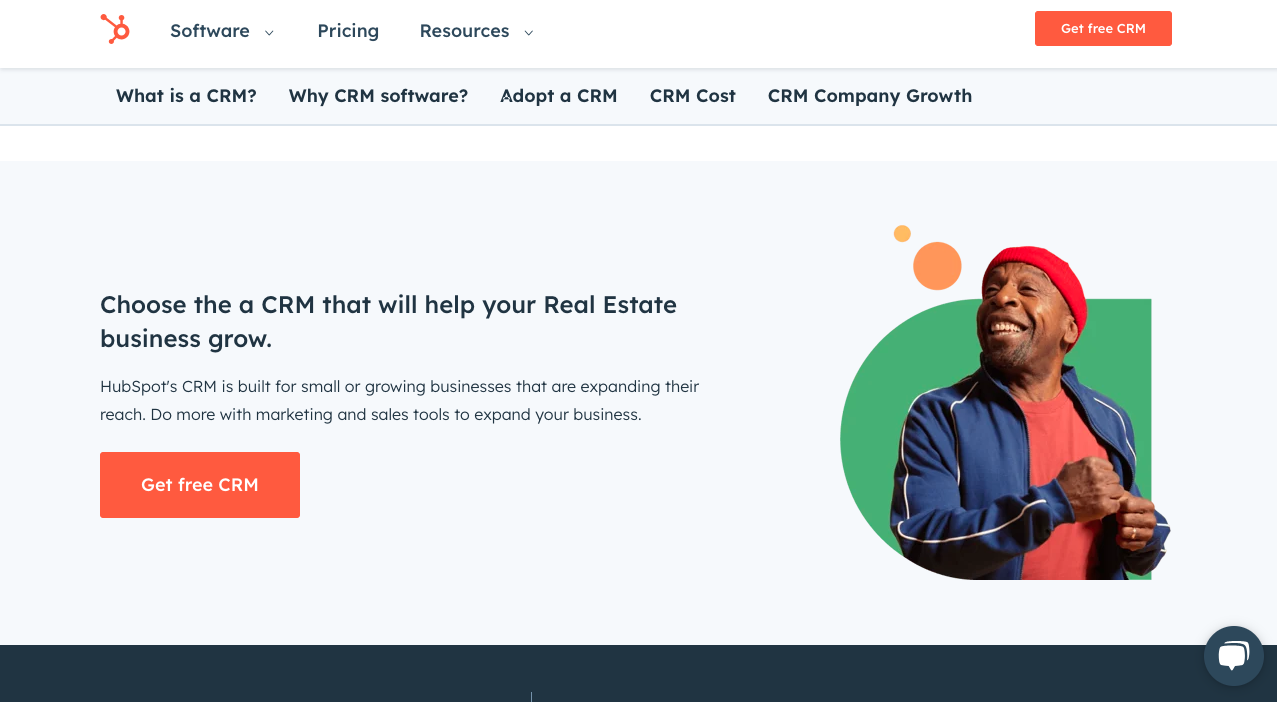
Source:HubSpot
- Automated Marketing: Automates marketing campaigns through emails and social media, targeting specific audience segments, which helps reach potential clients more effectively.
- Lead Management: Tracks and nurtures leads from the initial point of contact to the closing of deals, ensuring every opportunity is capitalized upon.
- Customer Relationship Tracking: Offers a detailed view of each client’s interaction history, enabling realtors to provide more personalized and effective service.
- User-Friendly Interface: The platform is designed for ease of use, allowing realtors to navigate and manage different functionalities efficiently.
- Integration Capabilities: Facilitates integration with various tools and platforms, boosting productivity and streamlining business operations.
II. Zoho
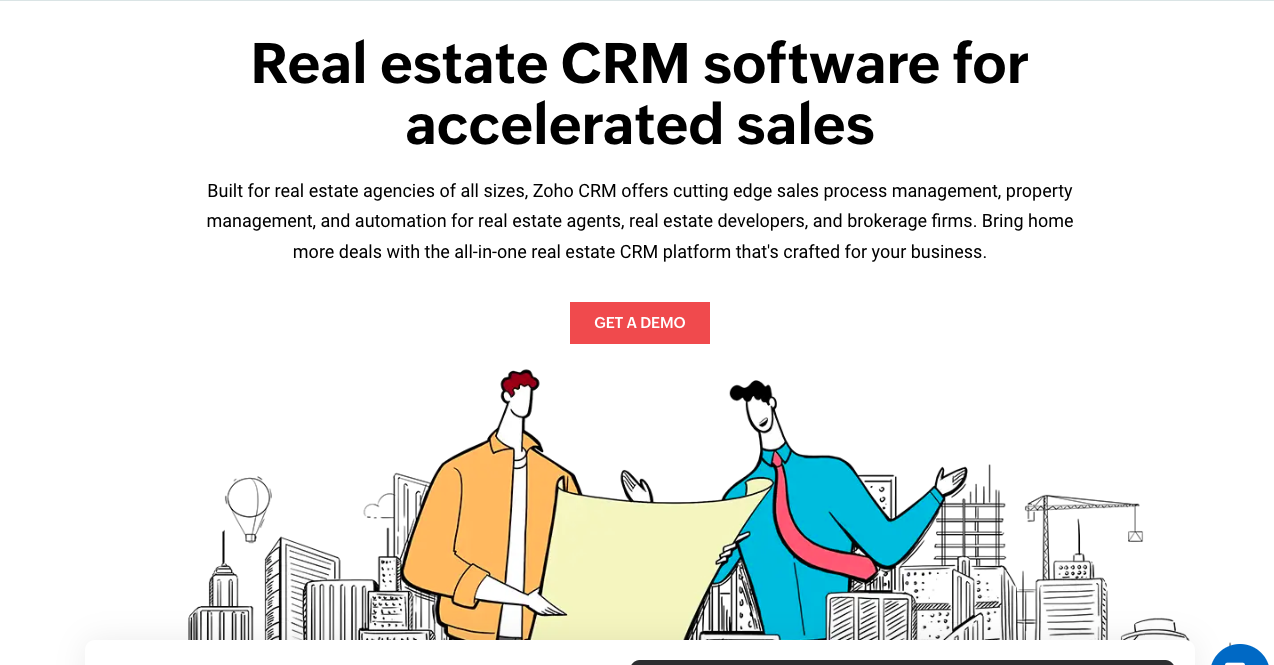
Source: Zoho
- Sales Automation: Automates routine sales tasks like scheduling follow-ups, which helps in maintaining consistent communication with potential clients, ensuring no lead is overlooked.
- Advanced Analytics: Delivers comprehensive insights by analyzing sales trends, customer preferences, and market dynamics, empowering realtors to make data-driven decisions.
- Process Management: Streamlines various business processes, from lead nurturing to closing deals, thereby enhancing operational efficiency.
- Customization: Allows for tailoring the CRM system to cater specifically to real estate needs, accommodating different business models and sizes.
- Scalability: Adapts to your business growth and is capable of handling an increasing number of clients and larger data volumes without compromising performance.
III. EngageBay
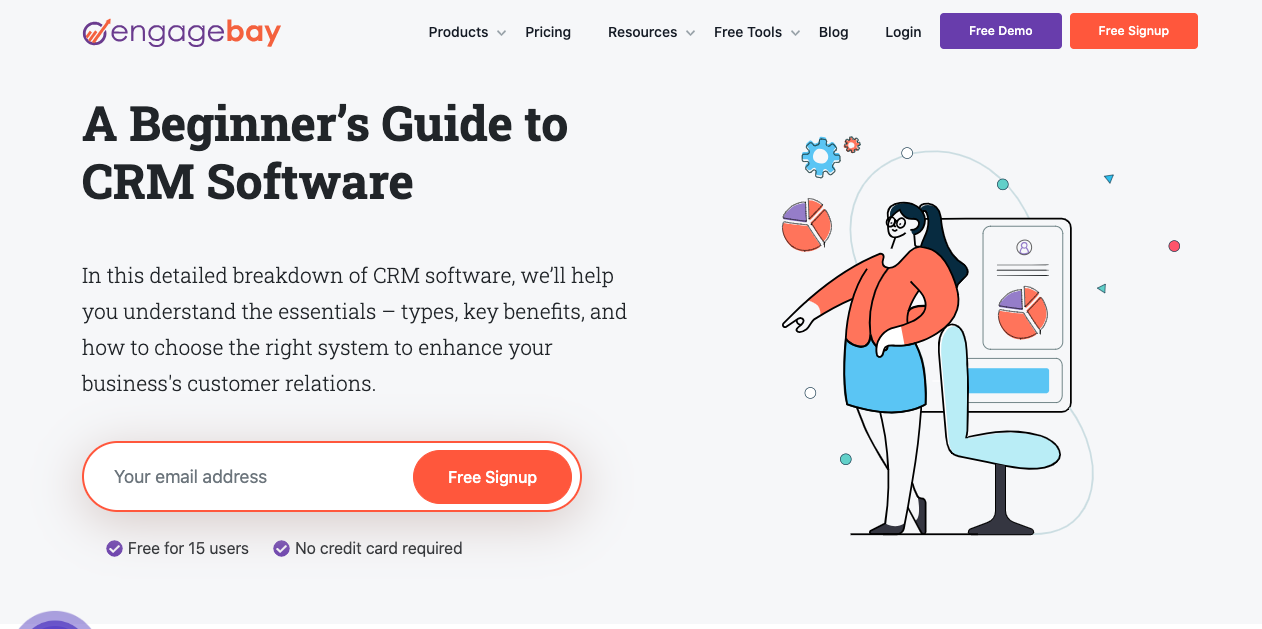
Source: Engagebay
- Email Marketing: This tool allows realtors to create and send targeted email campaigns, automate follow-ups, and track performance, ensuring effective client communication.
- Lead Generation: EngageBay provides tools for capturing leads through various channels, helping realtors grow their client base.
- Contact Management: It organizes all client information and interaction history in one place, making it easier for realtors to maintain relationships and manage client data effectively.
IV. Monday

Source: Monday
- Customizable Workflow: Real estate professionals can customize and streamline their work processes, such as listing management and client communication.
- Project Management Tools: These tools help manage different aspects of real estate transactions, from initial client meetings to closing deals.
- Client Tracking: This enables tracking of client interactions and preferences, which is crucial for building strong client relationships and offering personalized services.
- Deal Management: Facilitates the tracking and management of real estate deals, ensuring that all details are handled efficiently.
V. Freshsales
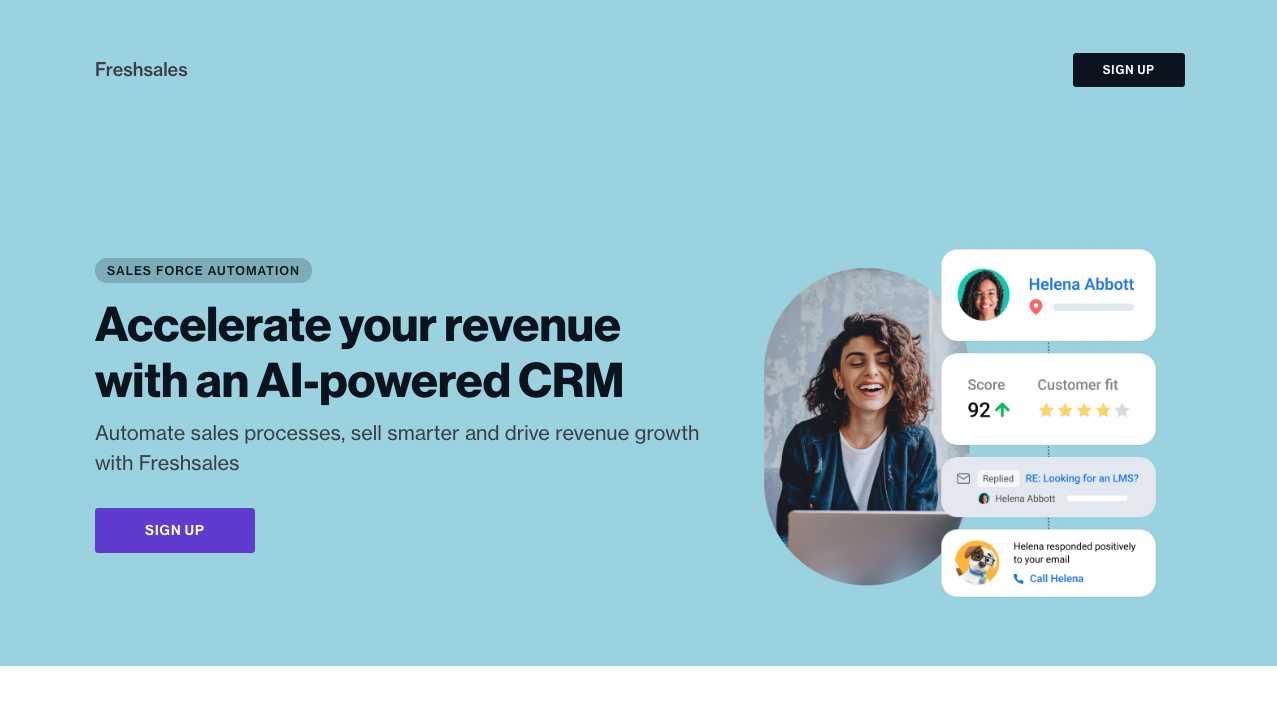
Source: Freshsales
- AI-Based Insights: This platform utilizes artificial intelligence to give realtors valuable insights about customer behavior and preferences.
- Advanced Lead Scoring: Helps prioritize leads by scoring them based on their interaction and engagement, ensuring focus on the most promising prospects.
- Intuitive User Interface: It is designed for ease of use, allowing realtors to navigate and manage different functionalities efficiently.
- Sales Process Automation: Streamlines sales tasks, such as follow-ups and scheduling, making the management of client interactions more efficient.
Integrating CRM for real estate is pivotal for success in the modern real estate market. By embracing the top platforms and leveraging their robust features, realtors can effectively manage client relationships, streamline operations, and drive business growth. This strategic approach is key to thriving in the competitive real estate sphere.
Unlock Your Business Potential With Expert HubSpot Support!
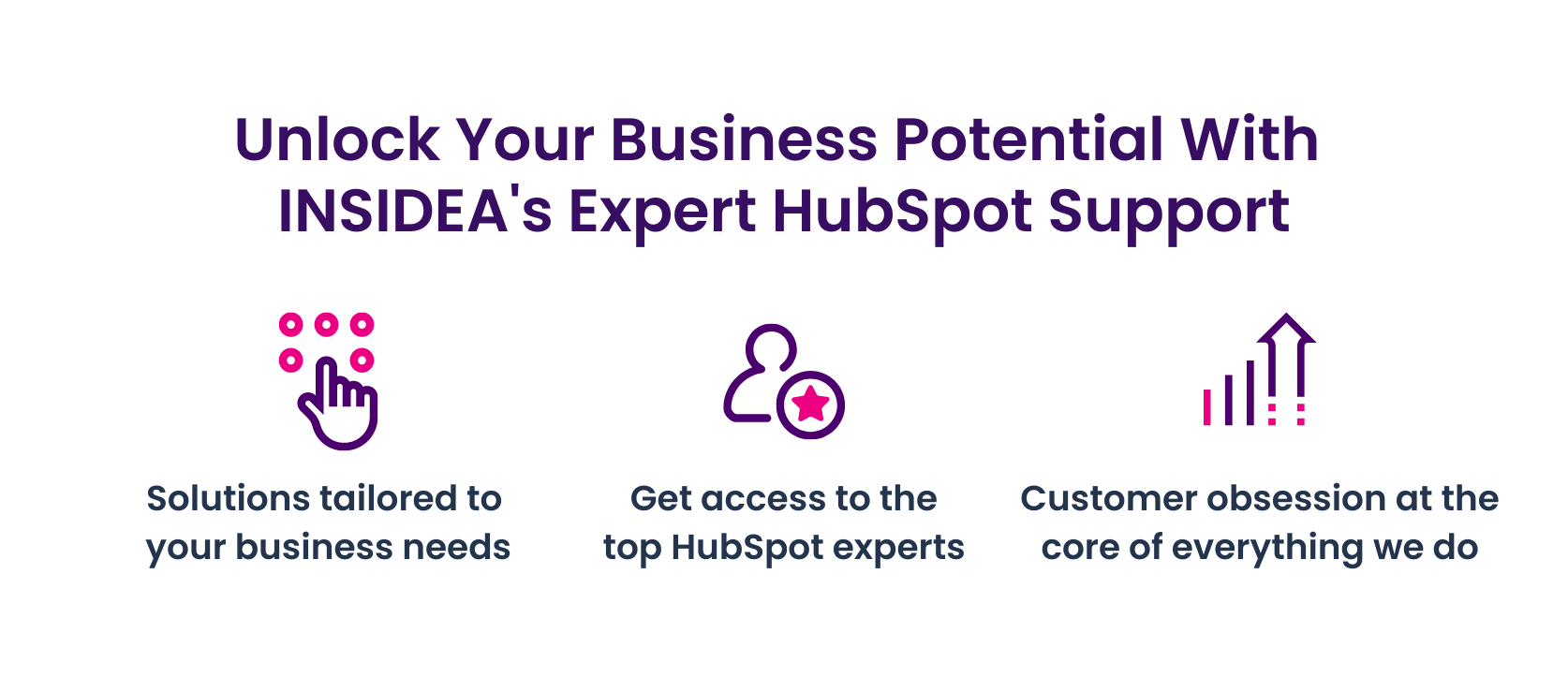
As a HubSpot solutions partner we take pride in assisting you with streamlining your HubSpot efforts. With our best-in-class marketing, sales, and service solutions, we help you scale exponentially.
INSIDEA’s HubSpot specialists have the required in-depth knowledge and can provide you with expert guidance on how to use the platform to meet your specific business needs.
Get in touch today to learn more about how INSIDEA can help you succeed!
- Tailored Experience: For us, user experience is the primary focus. Thus, INSIDEA works with you to ensure your HubSpot experience is tailored to your business needs.
- Industry Expertise: Our team specializes in the setup, implementation, and optimization of HubSpot tools, as well as being well-versed in HubSpot best practices to ensure your business has the highest ROI possible.
- Customer Obsession: For us, customer satisfaction is the key to success, and we strive to ensure that our customers’ needs are not only met but exceeded every time.
At INSIDEA, we understand the importance of valuable HubSpot strategies that understand your target audience and drive conversions. Book a meeting with our HubSpot experts to explore how we can help you with your upcoming projects.
Get started now!






